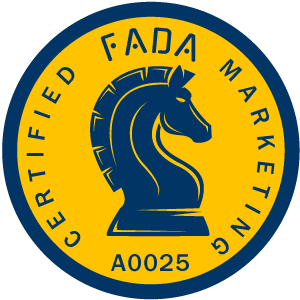Phone support available Mon-Fri, 9:00 am to 5:00 pm U.S. Central: (713) 936-5557
The Importance of Paid Advertising In Digital Marketing
In the fast-evolving world of digital marketing, small businesses seek clarity and direction to outshine the competition. This article delivers straightforward, practical strategies for small business digital marketing, designed to boost your online presence, engage target audiences effectively, and fuel business growth. Dive in to transform your digital approach and drive success without the fluff.
Key Takeaways
- Digital marketing for small businesses involves optimizing for mobile, understanding target audiences, and building a cohesive online brand identity through visual elements, tone of voice, and messaging.
- Paid search advertising (SEM) and social media platforms are essential for growth, requiring effective keyword selection, compelling ad copy, tailored bidding strategies, and the creation of engaging, platform-specific content.
- The importance of SEO, content marketing, strategic budget allocation, customer engagement, and the analysis and optimization of strategies are fundamental for increasing visibility, fostering relationships, and maximizing the effectiveness of digital campaigns.

Decoding Digital Marketing for Small Businesses
Digital marketing is a complex approach encompassing diverse strategies and tactics, including digital advertising. Optimizing websites for mobile and understanding the target audience are some of the many aspects that contribute to improving your online visibility.
A memorable brand online is not just about having a fancy logo or a catchy tagline. It involves developing:
- a cohesive visual identity
- a tone of voice
- messaging that aligns with your online presence and digital marketing efforts, including paid media campaigns.
The increasing personalization of digital marketing necessitates a deep understanding of your target audience. Tailored marketing messages can elevate your brand reputation, enhance visibility, and stimulate conversions.
Understanding Your Digital Footprint
Your digital footprint, the digital trail you leave behind on social media and the internet, is an important aspect of your brand. It reflects your brand and aids in establishing an online reputation. It’s crucial to evaluate and manage your footprint, which includes:
- Your trademarks
- Your phone number
- Your social media interactions
- Your online brand expression
Such active management helps boost your visibility, build trust, and facilitates more effective interaction with customers.
Crafting a Memorable Brand Online
A strong online brand can set you apart from the competition. Your visual identity, including elements like:
- your logo design
- color scheme
- typography
- imagery
establishes brand recognition and conveys your brand’s values and personality to your target audience.
Consistency is key in digital branding. Establishing a brand voice that mirrors your personality and formulating messaging guidelines helps maintain consistency across all digital platforms. This can help you build a robust online brand and foster recognition among your audience.

Tailoring Your Approach: Paid Search Advertising Essentials
Paid search advertising, also known as Search Engine Marketing (SEM), is a powerful tool in the digital marketing arsenal. It enables advertisers to display search ads on search engine results pages through targeted keywords, boost their visibility, attract targeted traffic to their websites, and connect with highly interested prospects.
When leveraged effectively, paid search advertising can be a valuable part of a small business’s paid advertising strategy, utilizing ad space through paid ads.
A successful paid search advertising campaign requires careful planning and execution. You need to focus on crucial factors like:
- Keywords
- Ad text
- Landing pages
- Budget
- Bids
- Campaign structure By considering these factors, you can effectively manage your paid campaigns and achieve better results.
Furthermore, understanding cost-per-click bidding, where you incur charges for each user click on your ad, is key to managing your ad spend effectively.
Selecting the Right Keywords
Selecting the right keywords is critical for the success of your paid search advertising campaign. Analyzing, comparing, and prioritizing keyword opportunities enables you to refine your digital marketing strategy.
Furthermore, by carefully selecting keywords that align with search intent, you can increase the likelihood of appearing in relevant search results and capturing the attention of the right audience.
Optimizing Ad Copy for Conversion
Writing compelling ad copy is an art. The right ad copy can make the difference between a click and a scroll. It should:
- Demonstrate how your product or service addresses the audience’s concerns
- Incorporate an emotional appeal
- Emphasize benefits over features
- Provide solutions
Using emotional triggers in your ad copy can help you connect with your audience on a deeper level. These triggers, when used strategically, can elicit positive emotions and prompt the emotions that drive interaction and conversion. Moreover, emphasizing the benefits of your product in your ad copy can help your audience understand how your product will address their concerns or enhance their lives.
Mastering the Art of Bidding
Bidding is a crucial aspect of paid search advertising. It requires you to specify the maximum amount you are willing to pay for each click or conversion on your ads. Mastering the art of bidding is a sure way to get maximum value from your ad budget.
Cost-per-click bidding operates on a model where advertisers incur charges for each user click on their ad. Understanding this can help you manage your costs effectively.

Leveraging Social Media Platforms for Growth
Social media platforms offer a vast array of opportunities for small businesses, including paid social media marketing. Understanding your audience and selecting the appropriate platforms empowers you to engage with your audience, disseminate value-rich content, and propel business growth. By leveraging both social media marketing and owned media, you can create a comprehensive marketing strategy that drives success.
Creating engaging content is a key part of social media success. You need to create content that resonates with your audience and encourages interaction. This could include:
- Posts that encourage user interaction
- Ephemeral content like stories
- User-generated content
- Contests
- Posts that center around entertainment, inspiration, education, and promotional offers.
Moreover, measuring the success of your social media efforts is crucial. Utilizing analytics enables you to gauge your success and make decisions grounded in data, providing insights into what’s effective, what’s not, and potential areas for improvement.
Identifying the Best Platforms for Your Business
Choosing the right social media platforms for your business is crucial. Considering the activity level of your target audience on different platforms and aligning the platform with your marketing objectives ensures that your efforts are targeted and effective.
Creating Engaging Content That Resonates
Creating engaging content that resonates with your audience is key to social media success. This involves understanding your audience’s needs, preferences, and behaviors and using this understanding to create content that is informative, engaging, and valuable.
There are various types of content that can drive engagement on social media. This includes:
- Short-form videos
- Engaging posts that encourage user interaction
- Ephemeral content like stories
- Easily consumable visual content
- User-generated content
- Contests
- Posts that center around entertainment, inspiration, education, conversation, and promotional offers
Diversifying your content types helps sustain audience interest and engagement.
Measuring Success with Analytics
Analytics play a crucial role in measuring the success of your social media efforts. Generating performance reports and setting key social media metrics such as engagement rate, reach, and conversion rate allows you to assess the effectiveness of your campaigns and gain invaluable insights into your audience’s behavior.
In addition, utilizing data analytics tools can help you enhance your social media performance and make data-driven decisions.
Enhancing Visibility with Search Engine Optimization (SEO)
Search engine optimization (SEO) is a key digital marketing strategy that can help your website rank higher in search engine results, thereby increasing visibility and traffic. It involves a range of strategies and tactics, from publishing relevant content to optimizing your website for search engines.
Off-page SEO is another important aspect. It involves activities that occur away from your website but can impact your rankings within the search engine results pages. This could include building high-quality backlinks, improving your online reputation, and leveraging social media.
Lastly, technical SEO is crucial for a smooth user experience. It encompasses elements such as website speed, mobile-friendliness, and crawlability, which can impact how easily search engines can crawl and index your website.
On-Page SEO Techniques
On-page SEO involves optimizing individual web pages on your site to rank higher in search engine results and attract more relevant traffic. This includes optimizing title tags, meta descriptions, and content for targeted keywords.
Optimizing title tags and strategically incorporating targeted keywords within content effectively boosts your SEO.
Off-Page SEO Factors
Off-page SEO refers to actions taken outside of your own website to impact your rankings within search engine results pages. This includes things like:
- Link building
- Improving your online reputation
- Developing backlinks
- Increasing visibility across various channels, such as news outlets and social media platforms
These actions help elevate search rankings, generate organic traffic, and boost your website’s reputation, authority, and relevance for search engines and users.
Technical SEO for a Seamless User Experience
Technical SEO refers to the technical aspects of your website that can impact its rankings in search engine results. This includes things like site speed, mobile-friendliness, and crawlability. Ensuring your website loads quickly, is mobile-friendly, and can be easily crawled by search engines is crucial for a seamless user experience and higher rankings.
Additionally, the structure of your website’s URL can also impact your SEO. Including keywords in your URL can enhance search visibility and rankings. Understanding these technical aspects of SEO can help you optimize your website and improve its performance in search engine results.

Harnessing the Power of Content Marketing
Content marketing is a strategic marketing approach focused on:
- creating and distributing valuable, relevant, and consistent content
- attracting and retaining a clearly defined audience
- aligning your content with customer needs
- attracting customers, engaging them effectively, and stimulating profitable customer action.
Blogging can be a powerful tool in your digital marketing arsenal. Creating unique and informative content helps boost website traffic, drive conversions, and complements your social media efforts.
Incorporating video content in your marketing strategy can yield great benefits, including:
- Promoting brand awareness
- Enhancing your online presence
- Humanizing your brand
- Increasing engagement
- Fostering trust
- Boosting conversions, resulting in increased customer acquisition.
Blogging for Business Impact
Blogging serves as a potent element within a digital marketing strategy, with the potential to:
- Substantially enhance lead generation and inbound links, thereby increasing website traffic
- Complement social media efforts by providing comprehensive content for potential customers
- Enhance the business’s online reputation
Video Content to Captivate and Convert
Video content, including video ads, has the potential to:
- Captivate and convert your audience
- Engage the target audience on a deeper level
- Drive traffic to the website
- Boost conversion rates
- Build trust
- Humanize the brand
- Enhance brand awareness
- Boost conversions resulting in increased customer acquisition.
There are various types of video content that can be effective for small businesses. This includes:
- FAQ videos
- How-to videos
- DIY videos
- Explainer videos
- Tips and tricks videos
- Interview videos
- Event promo videos
These can help build trust and effectively showcase your products or services.
Email Marketing: Nurturing Leads into Customers
Implementing a successful email marketing strategy can help nurture leads and maintain relationships with your current customers. Providing valuable content, concentrating on a relevant topic per email, and maintaining brevity in your emails effectively nurtures your leads.
In addition, here are some strategies to help you nurture relationships with your current customers:
- Offering value and education
- Fostering trust and connections
- Promoting referrals and reviews
- Automating your email campaigns
By implementing these strategies, you can strengthen your relationship with your current customers and encourage repeat business.
Smart Spending: Budget Allocation for Digital Campaigns
Allocating your digital marketing budget wisely is crucial for the success of your campaigns. Prioritizing high-ROI activities and diversifying your ad spend optimizes your marketing efforts and ensures a maximum return on investment.
High-ROI activities that should be prioritized include:
- Email marketing
- SEO
- Pay-per-click (PPC) advertising
- Social media advertising
These activities can offer significant returns and should receive a large portion of your budget.
Diversifying your ad spend across various channels can help you reach a wider audience and decrease your reliance on a single platform. By connecting with various audience demographics and selecting multiple channels, you can maximize your reach and reduce the risks associated with changes or outages in specific channels.
Prioritizing High-ROI Activities
Focusing on high-ROI activities can help maximize your marketing budget. By investing in activities like search, paid advertising, and email marketing, you can increase your return on investment and drive significant business growth. With each of these activities offering unique advantages, it’s important to prioritize them based on your business needs and goals.
Diversifying Your Digital Ad Spend
Diversifying your digital ad spend across multiple channels can minimize risk and maximize reach. By connecting with various audience demographics and selecting multiple channels, you can ensure that your marketing efforts reach as many potential customers as possible.
Moreover, spreading your ad spend across multiple channels can help you mitigate the risks associated with changes or outages in specific channels.
Building Relationships Through Customer Engagement
Engaging with your customers is key to building strong relationships and fostering loyalty. Personalizing digital interactions and managing your online reputation helps establish a positive brand image and fosters trust with your audience.
Personalization in digital marketing is about creating a unique experience for each customer. Utilizing data to effectively target and retarget leads with customized brand messages fosters a more meaningful connection with your audience.
Managing your online reputation is also crucial. Monitoring online mentions of your brand and responding promptly and appropriately ensures a positive brand image and cultivates trust with your audience.
Personalization in Digital Interactions
Personalization in digital marketing efforts is key to creating a more meaningful connection with your audience. By understanding your customers’ needs, preferences, and interests, you can tailor your marketing messages to resonate with them. This not only enhances engagement but also fosters brand loyalty and improves customer satisfaction.
Reputation Management Online
Managing your online reputation is essential in the digital age. Your online reputation can significantly impact your business, influencing customer perceptions and choices. A favorable reputation increases the likelihood of customers trusting and selecting your business over its competitors.
Implementing reputation management strategies can help you actively monitor and manage your online reputation. This includes:
- Monitoring what is being said about your brand online
- Responding to positive and negative reviews in a timely and appropriate manner
- Taking steps to address any issues or concerns raised
By doing so, you can ensure a positive brand image, build trust with your audience, and foster long-term customer relationships.
Analyzing and Optimizing Your Digital Efforts
Analyzing and optimizing your digital marketing efforts is crucial for achieving better results. Here are some key steps to follow:
- Set up metrics and KPIs to track the performance of your campaigns.
- Use data analytics tools to gather insights and identify areas for improvement.
- Adopt a test, learn, and adapt approach to continuously refine your strategies. By following these steps, you can ensure that your digital marketing efforts are effective and yield better results.
Setting up metrics and KPIs can help you measure the success of your digital marketing campaigns. Tracking critical statistics such as organic search traffic, website or landing page conversion rates, and return on marketing investment (ROI) provides direct insights into the efficacy and success of your strategies.
Utilizing data analytics tools can help you make informed decisions and improve your strategies. These tools provide valuable insights into user behavior, enabling you to optimize your campaigns and achieve better results.
Setting Up Metrics and KPIs
Setting up metrics and KPIs is crucial for measuring the success of your digital marketing campaigns. By tracking key statistics like:
- organic search traffic
- website or landing page conversion rates
- cost per click (CPC)
- return on marketing investment (ROI)
You can gain direct insights into the effectiveness of your strategies.
This can help you understand what’s working, what’s not, and how you can improve.
Utilizing Tools for Data-Driven Insights
Data analytics tools like Google Analytics, Tableau, and Amazon QuickSight can provide valuable insights into your audience’s behavior. They allow you to track key performance indicators, analyze data, and make data-driven decisions.
Utilizing these tools helps optimize your campaigns, augment your marketing efforts, and achieve superior results.
The Cycle of Test, Learn, and Adapt
Adopting a test, learn, and adapt approach is key to continuously refining your digital marketing efforts. This approach entails testing new ideas, tactics, or features, learning from the results, and tweaking your strategies based on the gained insights.
This approach drives innovation and can help you enhance your performance over time.
Summary
In conclusion, digital marketing offers a multitude of opportunities for small businesses to connect with their target audience, build brand awareness, and drive business growth. By understanding your digital footprint, crafting a memorable brand, leveraging social media, and optimizing your website for search engines, you can enhance your online visibility and reach more customers. Remember, the key to successful digital marketing is to keep analyzing, learning, and adapting your strategies for better results.
-
Is digital marketing worth it for small business?
Yes, digital marketing is worth it for small businesses as it offers advantages like low cost, wide reach, reaching new customers, and improving customer service processes.
-
Can I do digital marketing for my own business?
Yes, digital marketing is highly accessible to businesses of all sizes and can be a cost-effective and efficient way to promote and grow your brand. Compared to traditional forms of marketing, it can be less expensive and easier to plan and update.
-
How much does digital marketing cost for a small business?
Our digital marketing services are priced at fixed rates, allowing us to provide affordable solutions for small businesses. By offering flat rates, we ensure accessibility without compromising quality or value.
-
What is paid marketing in digital marketing?
Paid marketing in digital marketing refers to advertising strategies where a brand pays to display promotional content on various digital platforms, targeting specific audiences based on their interests, behavior, or interactions with the company. This can include search engine advertising, display marketing, and social media advertising.
-
What is the significance of online reputation management for small businesses?
Online reputation management is crucial for small businesses as it helps build trust and attract positive customer reviews, both of which are vital for success in the digital age.










Contact Us:
Mansfield Marketing LLC
22001 Northpark Dr. STE 240B
Houston, TX 77339 USA
(713) 936-5557
sales@mansfield.us

Stripe™ Climate Partner:
Mansfield is partnered with Stripe to donate 1% of all sales to climate carbon removal technologies. Learn more.

FADA® Certified Agency:
Mansfield AI is a FADA Certified marketing professional organization.
©2023 Mansfield Marketing LLC • All Rights Reserved • Privacy • Mansfield AI is owned and operated by Mansfield Marketing LLC